Remembering Dr. Paul Farmer, One Year Later
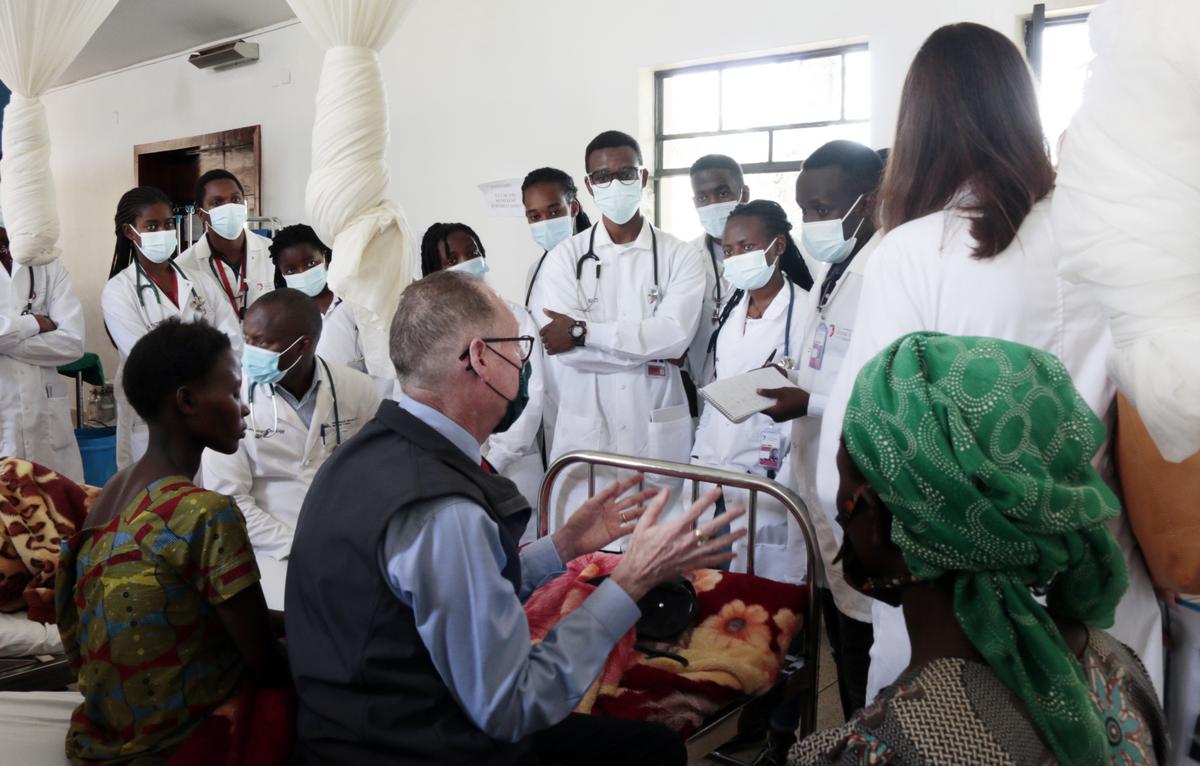
PIH marks one year since co-founder’s passing with reflections from friends and colleagues
Posted on February 21, 2023
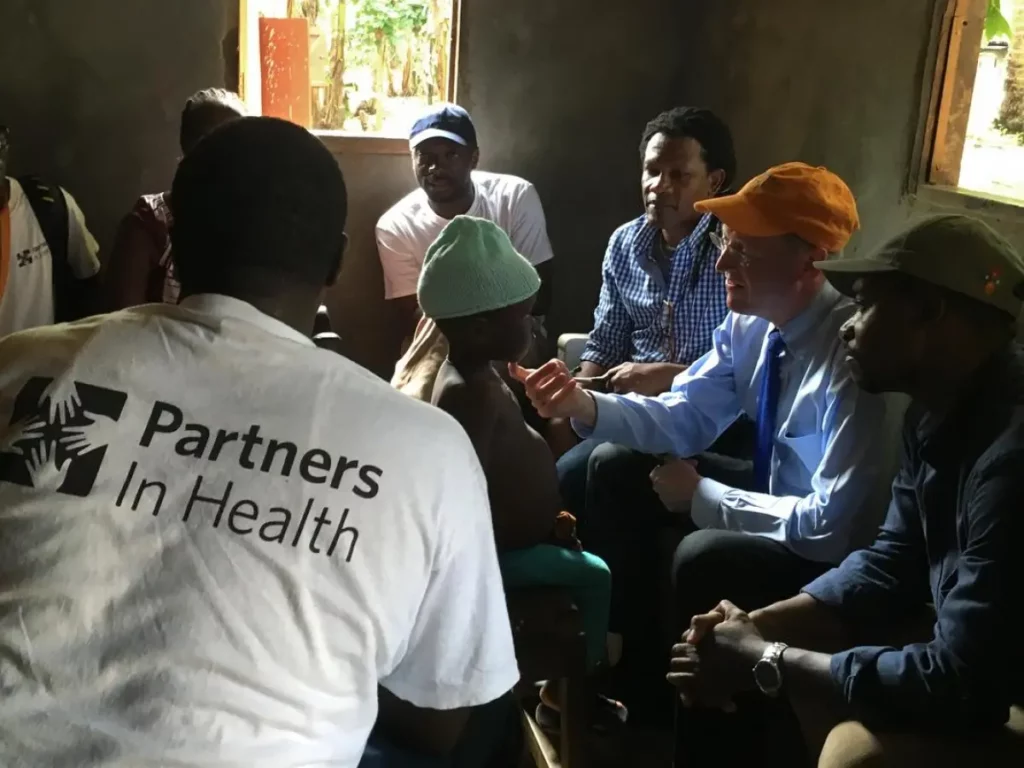
As Partners In Health marks one year since the passing of Dr. Paul Farmer, we remember our beloved co-founder’s life and legacy—a force that planted the seeds of our community decades ago and continues to grow and guide us today.
From treating our first patients in Haiti in the 1980s, to urging global leaders to act in solidarity with the poor, to accompanying doctors on rounds, Paul put his values into practice every day. Those values—including a preferential option for the poor—inspired generations of doctors, nurses, patients, students, and more, creating a global community united by the belief that health care is a human right.
Paul held many titles and received numerous accolades throughout his life. But he accompanied patients and presidents alike, remembering faces, names, and details few others would. No one was a stranger to Paul—or, at least, no one was a stranger for long.
Paul may have left us in 2022, but his legacy lives on in every person, policy, and program he touched. His teachings—captured in books, speeches, and interviews—offer a reminder of our past and a roadmap for our future. Paul left an indelible mark not only on global health, but on our hearts and the hearts of everyone he healed and held, comforted and challenged, taught and tended to.
Below are excerpts from reflections written last year by those who knew Paul:
A Practice of Accompaniment
Sheila Davis, Partners In Health CEO:
“What inspired me most about Paul was his practice of accompaniment. He had a unique ability to meet people exactly where they were – no matter where that was – and sit beside them, with them, accompanying them. From community health workers, who are our true heroes and teachers as Paul would always say, to patients to colleagues – Paul would show up, listen, and make the person in front of him feel special.”
Bill Clinton, 42nd president of the United States, wrote a tribute to Paul. The following is an excerpt from TIME:
“But his voice still rings in our ears. All our lives are passing, but the purpose of living endures: to lift others and empower them to live and work just as he did—with love, gratitude, and joy.”
Claudine Humure, among Paul’s first patients in Rwanda in the early 2000s, who later worked at PIH’s University of Global Health Equity in Butaro:
“I was grateful to have been blessed to know him. He was truly a blessing. He first became my doctor, then he became my friend, then he became my colleague, and then he became a father. Our relationship was profound, and it is truly the definition of what he always taught his staff: accompaniment. The power of walking with those you serve and those you serve with. We walked the walk together.”
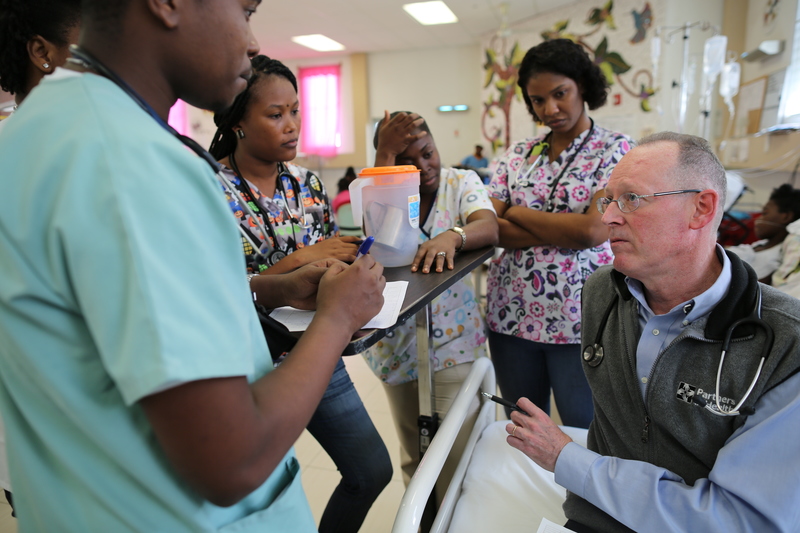
A Visionary with Moral Clarity
Matthew Bonds, associate professor of global health and social medicine at Harvard Medical School and cofounder of PIVOT:
“Paul’s genius was that he not only saw how each part of the system was connected—from frontline care providers to global funders to drivers, scientists, cleaners, and everyone in between—he knew how to fortify and grow those connections around a common moral clarity on behalf of patients everywhere.”
Joseph Rhatigan, Jr., associate professor of medicine and global health and social medicine, and associate chief of the Division of Global Health Equity at Harvard Medical School:
“Hope, for Paul, was a moral decision. He often told me that it was irresponsible for us, the privileged, to give into the temptations of cynicism and despair because there was so much we needed to do to address the situation of those suffering from poverty and disease.”
Regan Marsh, senior strategic advisor at Brigham and Women’s Hospital and former director of clinical systems at PIH:
“He was ambitious about what must—and can—be done. He refused to be constrained by people’s lack of imagination. In making everyone a bit nervous with his vision, we achieved things that we were told weren’t possible. He told all of us to do what was needed, and that we would sort out the details later.”
Gregg Gonsalves, co-director of the Global Health Justice Partnership and an associate professor of epidemiology at the Yale School of Public Health, wrote a tribute to Paul published in The Nation. The following is an excerpt:
“Gone now, I hope, is the idea of Paul as the good doctor, who is—was—there to make us feel like he was one of the better angels of our nature, a humanitarian who tended to the poor and sick, without making any claims on us.”
Jacklin Saint Fleur, chief of operations at PIH’s Hôpital Universitaire de Mirebalais in Haiti:
“Paul was a great father taking care of his family, a passionate physician who treated his patients with compassion, respect, and dignity, a great professor who helped his students mastermind the most complex concepts, and a loving friend with a great soul. A global health visionary who dedicated his life to improving human health and advocating for health equity and social justice worldwide.”
Alicia Ely Yamin, PIH’s senior advisor on human rights, wrote a reflection about Paul, published in English and Spanish on OpenGlobalRights. The following is an excerpt:
“Paul had an extraordinary impact on everyone he touched in every corner of the globe, whether through his healing hands, his mentorship and friendship, or his inspirational writing. He literally connected the world through his work and his life, and continually showed us our common destiny and shared humanity. At a time when the world seems so broken, it could not be more urgent to carry forward Paul’s vision for human rights.”
Mark Brender, national director of PIH Canada, wrote a reflection about Paul Farmer, published on PIH Canada’s website:
“The tributes from philanthropists and colleagues and those who considered him a mentor all speak to a once-in-a-generation life cut far too short, a momentous global loss. But I don’t worry for PIH’s future without him. . .The movement will continue to grow and blossom, building on successes to show the world what is possible. That was always Paul’s plan.”
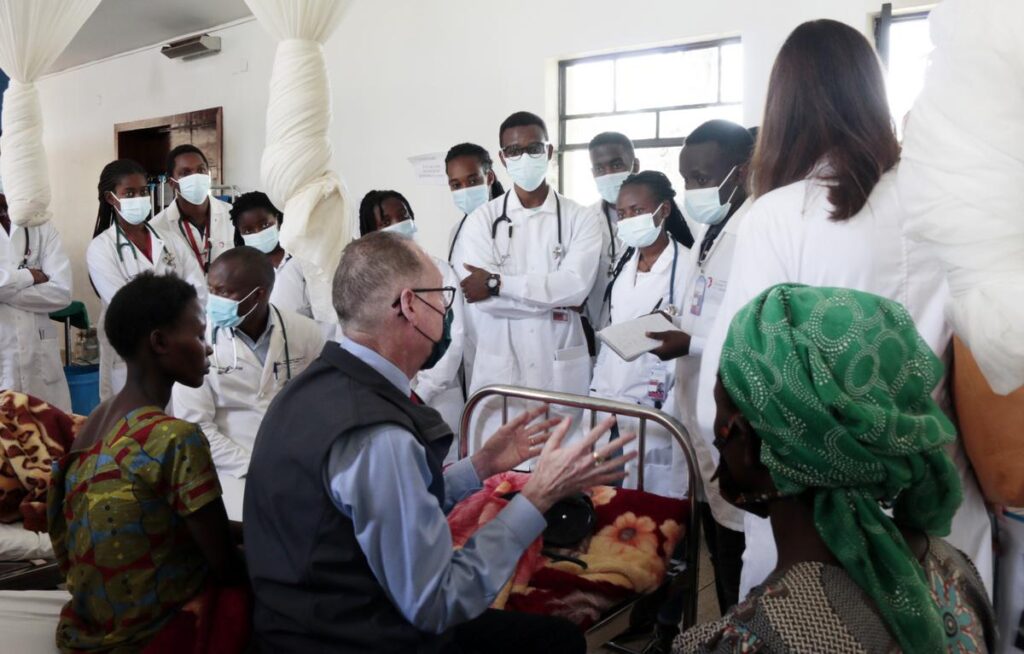
An Advocate for Patient-Centered Care
Tracy Kidder, bestselling author of Mountains Beyond Mountains: The Quest of Dr. Paul Farmer, a Man Who Would Cure the World, wrote a tribute to Paul in The New York Times. The following is an excerpt:
“Paul’s basic belief was that all human beings deserve equal respect and care, especially when they are sick. His dream, he once told me, was to start a movement that would refuse to accept, and would strive to repair, the grotesque health inequities among and within the countries of the world. When I first met him — in Haiti, in 1994 — he had already created a growing health care system in a desperately impoverished area. I thought he’d done a lot already. Now, looking back, I realize that he was just getting started.”
Dan Palazuelos, PIH’s director of community health systems and assistant professor at Harvard Medical School:
“I lost my captain, my mentor, my trickster uncle, my great friend. I didn’t think there would be much utility in grieving publicly, but I’m looking up from my grief to remember that what Paul wanted was incredible in its simplicity. His message was radical but straightforward: national borders, price points, patents, policy — everything is mutable if we focus first on how we treat one another.”
Cate Oswald, PIH’s chief policy and partnership officer:
“When I was going through the act of completing this work over the past many years I had not realized—until stepping into my current role dedicated to advancing our policy and advocacy efforts—that each and every action I was taking—that Paul had demonstrated to me first hand—was in and of itself advocacy. Patient advocacy. Leading with the patient at the center.”
Aaron Berkowitz, neurology advisor for PIH:
“His writings, the organization he built, and the community of practice he created will continue to inspire generations to serve those less fortunate than them, fight for health equity, and do what is good and just. But for those of us who had the chance to meet him even briefly, he will also inspire us to do as he did: lock eyes with everyone we meet, slow down the handshake, truly see the person in front of us, listen to them, and thank them for the work they do.”
Joia Mukherjee, PIH’s chief medical officer:
“Everyone who knew Paul, knew how he lived in this space between sorrow and joy. For when we truly feel the pain of others—in our chest, in our bones—it is because we love; because our connection is rooted in the undeniable humanity of one another.”
Andy Wilson, PIH’s chief development officer, wrote a reflection about Paul, published in Interfaith America. The following is an excerpt:
“Paul’s last text to me from Rwanda was a reminder of why we had to save this patient: “This is such a big part of our mission. You know, an antidote to despair.”
Alex Coutinho, former executive director of Inshuti Mu Buzima, as PIH is known in Rwanda:
“Paul died like he lived his life, at the frontline serving patients and always teaching and mentoring. The greatest lesson you could learn was to observe Paul’s interaction with the sick and poor and hungry. The love, compassion, care and reassurance he gave his patients was like a spiritual experience reminding us of how our patients and their many needs should always come first.”
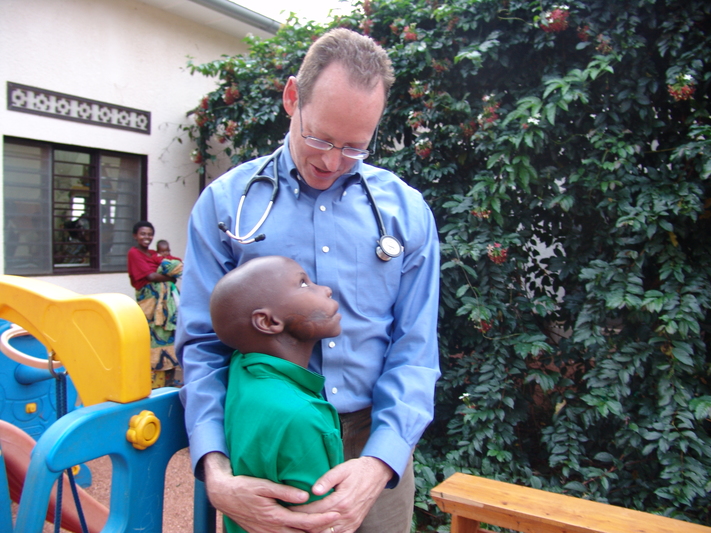
A Revolutionary Caregiver
Jim Ansara, co-founder and executive director of Build Health International, wrote a tribute to Paul for WBUR’s Cognoscenti. The following is an excerpt:
“Dr. Paul Farmer’s unreasonable vision about what was possible, and what could be accomplished has led to great advancements in the global health community, time and time again. From proving against conventional wisdom, and the scientific community, that multidrug-resistant tuberculosis could be treated successfully through a low-cost community health model, a program in Haiti to treat HIV/AIDS patients, building a hospital, cancer center, and then medical school in rural Rwanda, to leading PIH into an emergency Ebola response and then permanent programs in West Africa.”
Gunisha Kaur, assistant professor of medicine at Weill Cornell Medicine and medical director at the Weill Cornell Center for Human Rights, wrote a tribute to Paul in TIME. The following is an excerpt:
“With his radical approach and generosity of spirit, he trailblazed a pathway for global health to be a social justice movement. Through his own work, and through the continued work of his students, he improved the life and wellbeing of countless patients across the world.”
Ashish K. Jha, physician and dean of Brown University’s School of Public Health, wrote a tribute to Paul in The Atlantic. The following is an excerpt:
“He was unconstrained by small thinking. He rejected the artificial limitations we put on caring for the world’s poor—limits we would never put on ourselves or our families. He refused to accept the soft bigotry of low expectations. When HIV was devastating Haiti, the standard response in public health was to write off people, saying HIV therapies were too expensive and difficult to deliver to the world’s poor. So Paul set out to prove everyone wrong. He set up clinics and hospitals with a simple goal: deliver the same quality care that he provided when he was caring for patients in Harvard’s teaching hospitals. It wasn’t an easy task, but it worked. Tens of thousands of people received the latest HIV care. So many lives were saved.”
Arachu Castro, a public health professor at Tulane University and former PIH volunteer and Harvard Medical School faculty:
“Paul was inspired by many but followed no one’s path. He treasured his family, friends, students, and, above all, his patients. Despite his premature death, Paul did manage to change the world, and his vast legacy will live on through generations.”
John Green, bestselling author and longtime supporter of PIH:
“I don’t really believe in heroizing individuals, but Paul was, for me and for many, a hero. As a medical anthropologist and physician, he was deeply committed to the belief that all human lives had dignity and that every person deserves access to high-quality health care. He lived this belief for his entire career.”
Michael Murphy, founding principal and executive director of MASS Design Group, wrote about Paul. The following is an excerpt from MASS Design’s newsletter:
“But the other lesson of why we were there—to ‘beautify’ the grounds of a rural clinic—is equally important. We have to remember that the person we lost on February 21st was not only a father figure and leader, a humanitarian, and a voice for change. Paul Farmer was also one of the greatest designers of our built world, one of the greatest systems thinkers to have ever lived. He was the kind of architect I aspire to be.”
Michelle Williams, dean of the faculty at Harvard T.H. Chan School of Public Health, wrote about Paul in The Boston Globe. The following is an excerpt:
“Paul Farmer never accepted the status quo. … Inequality is status quo. Racism is status quo. The notion that the poor will live in misery and die from diseases that are eminently treatable — that’s status quo too. And Paul would have none of it.”
Hugo Flores, former executive director of Compañeros En Salud, as PIH is known in Mexico:
“Those of us who had the opportunity to know him saw that he never rested. He was always traveling, carrying the message, inspiring, seeking funds, envisioning what was impossible for many to achieve, a 3rd level hospital in the middle of Haiti, a world class university in Rwanda. I never saw him refuse his attention to anyone who wanted to talk to him, even if it was 2 o’clock in the morning. He always saw patients wherever he went.”
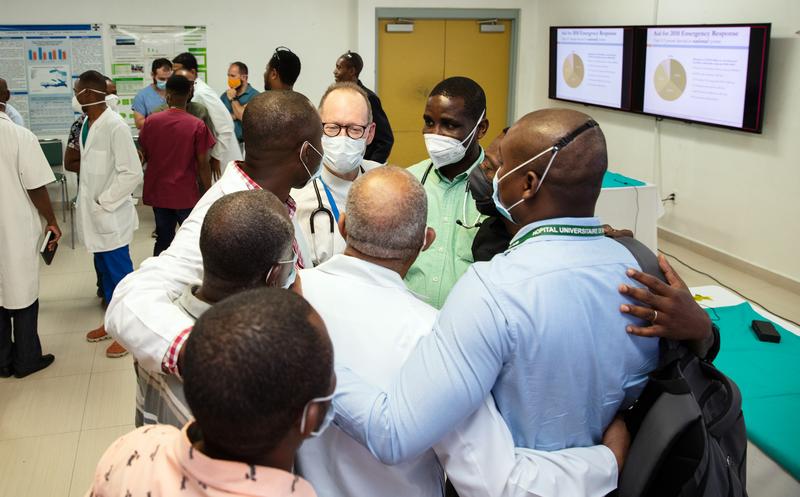
An Inspiring Teacher
Bill Gates, co-founder of Microsoft and co-chair of the Bill & Melinda Gates Foundation, wrote a tribute to Paul in The Atlantic. The following is an excerpt:
“There will never be another Paul Farmer. I will miss him deeply. I am comforted by the knowledge that his influence will be felt for decades to come. His work will continue through Partners in Health, and it will be carried on by the many people he trained and inspired.”
Steve Reifenberg, a teaching professor at the Keough School of Global Affairs at the University of Notre Dame and a member of PIH’s Board of Trustees:
“His work in global health was transformative. He gave many of us working in the field a new vocabulary that overcomes ‘failures of imagination’ by seeing what is possible if we work together in partnership. His life and work embraced proximity to the poor and pragmatic solidarity. ‘It isn’t just signing a petition or voicing one’s displeasure or anxiety,’ he’d say, ‘but actually doing something with solidarity.’”
Katie Kralievits, Paul’s chief of staff:
“Paul taught us many things, but understanding what it takes to be a caring and loyal friend will be one of the most important lessons for me. In these last few weeks, while Paul was in Butaro, doing what he loved so deeply, he didn’t give me much to worry about. I could tell it in his voice during our daily calls. “Free for a quick hi?” we’d ask each other before dialing. (Paul wasn’t a fan of “cold calls.”) He was so at peace in Butaro, and so in his element. He was surrounded by cohorts of loving students, patients who needed his attention and care, and dozens if not hundreds of redwoods and rose bushes. The time he spent there was a gift he wholeheartedly deserved.”
Sriram Shamasunder, physician, associate professor of medicine at the University of California San Francisco, and co-founder and faculty director of the HEAL Initiative—wrote a tribute to Paul. The following is an excerpt from NPR’s Goats And Soda:
“When I finished my residency, like so many physicians in my generation, I attempted to follow his example. I wanted to work in Haiti, where he started his organization Partners in Health in 1987. On a brief phone call, he instead enrolled me to work over the next year in rural Burundi, a place with even fewer physicians. Like so many before me, so early in my career, he made me feel as if I were making the only career decision that made sense—choosing what he called ‘pragmatic solidarity’ alongside the poor.”
Vikram Patel, the Pershing Square Professor of Global Health in the Blavatnik Institute’s Department of Global Health and Social Medicine at Harvard Medical School, wrote a tribute to Paul. The following is an excerpt from the Indian Journal of Medical Ethics:
“It was watching and learning, how you had transformed global health from a highly academic subject, typically taught in wealthy countries about the less fortunate peoples of the world, by scholars whose lives are disconnected from those peoples, into a subject suffused with rights, equity, dignity, inclusion, compassion, and most of all, outrage… .”
Junaid Nabi, a physician and senior researcher in health care strategy, wrote a tribute to Paul in STAT. The following is an excerpt:
“Farmer taught an entire generation of physicians to reimagine the practice of medicine and work toward treating the systems that surround patients, and not just the diseases they had.”
Originally published on pih.org



